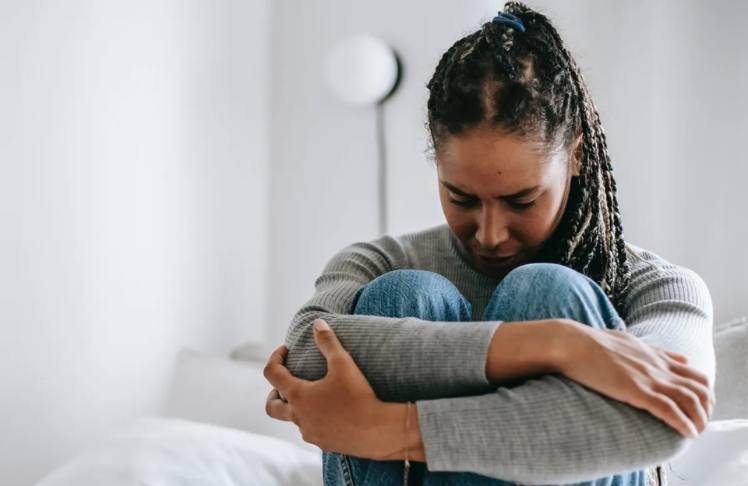
Exposure to racism and other stressors increase the risk for depression in Black folks and other people of color. But for Black women — who are impacted by racism, sexism, and other forms oppression — their depressive symptoms appear differently than other groups and may go overlooked by doctors.
A Dec. 2022 paper published in Nursing Research revealed that Black women are less likely to report stereotypical symptoms of depression such as sadness or hopelessness. Instead, they’re noting trouble sleeping, self-criticism, irritability, and an inability to experience pleasure.
This discovery — made by researchers at NYU Rory Meyers College of Nursing and Columbia University School of Nursing — could mean Black women aren’t getting the mental health care they need.
“Based on our findings, it’s possible that health care providers may miss depression symptoms in Black women, resulting in underdiagnosis and undertreatment,” Nicole Perez, Ph.D., RN, a psychiatric-mental health nurse practitioner and postdoctoral associate at NYU Rory Meyers College of Nursing and the lead author of the study, said in a statement.
Depression is a serious mental illness that can impact how a person feels, thinks, or acts. It can also lead to emotional and physical problems that make it difficult to function at work or at home.
The illness is diagnosed by providers based on symptoms reported by patients during an evaluation. Some other symptoms that are considered common include low mood, loss of interest in activities, and changes in appetite or sleep.
While there are “common” symptoms, the reality is that depression appears uniquely for everyone.
With over 1,500 possible combinations of symptoms that meet the criteria for a depressive disorder, it’s not unusual for it to be undertreated.
But with most research on symptom variation having been conducted on white people, it makes it even more likely that depression will be missed among Black women and other people of color.
Black women are particularly at risk for major depressive disorder — or clinical depression — due to them bearing societal burdens of poverty, single parenthood, and racial and gender discrimination.
The researchers examined data from 227 Black women who were screened for depression as part of the Intergenerational Impact of Pscycholgical and Genetic Factors on Blood Pressure (InterGen) study — a study that sought to understand the genetics, psychological, and environmental factors that contribute to high blood pressure in Black mothers and children.
While the study results could be considered groundbreaking due to the lack of representation of Black women in previous research, the researchers caution people from generalizing their findings to all Black women. This is due to the fact that the study participants were younger and had “relatively low levels of depression.”
Nonetheless, the results further the conversation about the need for inclusive screening tools that account for all types of depression symptoms, including somatic — relating to the body — and self-critical.
“My hope is that these findings contribute to the growing dialogue of how depression can look different from person to person, and raise awareness of the need for more research in historically understudied and minoritized populations, so that we can better identify symptoms and reduce missed care and health disparities,” Perez said.
For more information on free mental health services near you, visit the National Alliance on Mental Illness at www.nami.org.















